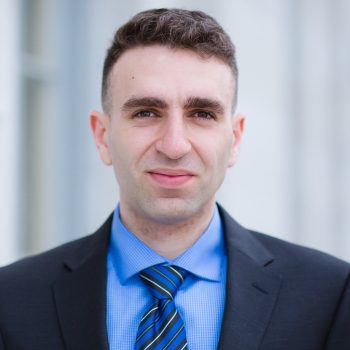
Join us in celebrating Sean Wolfe, an exceptional PhD candidate in the Aerospace Mechatronics Research Group at U of T. His remarkable achievement of winning the prestigious Vanier Canada Graduate Scholarship underscores his dedication to shaping the future of aerospace.
Professor Reza Emami, Wolfe’s accomplished supervisor, highlights Sean’s pioneering potential, stating, “His research topic on a very special group of near-Earth asteroids can potentially pave the road toward a new era of space exploration and resource utilization, which is a crucial step in the future spacefaring.”
Emami delves into the qualities that set Sean apart, sharing, “He has completed a master’s course in aerial robotic teams and another master’s course specializing in aerospace remote sensors. As a result, algorithms he developed for multi-agent tracking and hands-on experience in the state-of-the-art for optical payloads provide a unique set of knowledge and experience specifically relevant to the proposed research.”
“Furthermore, Sean has not only participated in the various endeavors listed on his resume but has also been a difference-maker in all of them,” Emami continues. “For example, he led a department in the navy, and played high level university sports. In academics, he was a student chapter president.”
With an insatiable curiosity and a passion for exploration, Sean’s work resonates at the intersection of aerospace and mechatronics, where he’s on a mission to drive innovation. As a recipient of this distinguished award, valued at $150,000 over three years, Sean’s academic excellence, research prowess, and leadership potential shine brightly.
Writer Jennifer Li caught up with Wolfe to learn about his experience, lessons, and journey pursuing his PhD at UTIAS.
How do you see your research contributing to the broader field of aerospace mechatronics?
Currently, my research is focused on two primary directions. The first pertains to space debris, while the second revolves around minimoons. I am optimistic that our proposed approach for space debris, utilizing 4D LiDAR for rate determination, will garner positive reception within the community. This methodology introduces a fresh perspective on leveraging state-of-the-art sensing technologies available today. However, it’s the realm of minimoons that truly ignites my enthusiasm. These petite asteroids, briefly becoming secondary moons, hold immense potential yet remain shrouded in mystery due to limited knowledge. We know very little about them, but their potential is enormous, and I would love to be part of the researchers who help demystify these rare objects.
How do you handle challenges and setbacks in your research, and what lessons have you learned from them?
I think one important quality any researcher should have is to question and analyze everything. This might get on people’s nerves in the outside world, but in the world of research I see it as invaluable. When your results don’t match your expectations, don’t be discouraged. That is the greatest opportunity for discovery and gaining new understanding. Dig deeper, find out the ‘why’ behind these differences in your expectations.
What advice would you give to aspiring researchers or students looking to enter the field of aerospace mechatronics?
Don’t be scared to take every opportunity you can to grow. It can be easy to see an opportunity for growth and equate it with a lot of time, effort, and money. But these opportunities are rare and they may never come again. One example for me is maybe Japanese. I had always wanted to learn Japanese and they offered it at McGill. So I added a minor in Japanese language, which I knew would require a lot of extra work. The minor ended being instrumental for me; a full scholarship and a masters degree at the University of Tokyo, then here at UTIAS, and eventually this prestigious Vanier scholarship, not to mention all the adventures and people that came along the way!
Are there any individuals or groups you’d like to acknowledge or thank for their support during your academic journey?
Throughout my academic life I’ve had teachers who went above and beyond what was required of them, and I will be forever grateful of their passion and sacrifice. My high school teacher Mr. Zibgy, my robotics team mentor Dominique Paradis, my Russian teacher Liudmila Klimonova, my Japanese teacher Tomoko Ikeda, my flight instructors Denesh Boodoo and Tony Tiefenbach, my RMC supervisor Sidney Givigi, my skydiving instructor Ed Miller, and my current supervisor at UTIAS prof Emami.
I would also like to thank my fiancé and my family for their love and support.
Finally, those who were kind enough to write recommendation letters on my behalf for the Vanier scholarship: my RMC volleyball coach Steve Leknois, my supervisor in the navy Lieutenant-Commander Chaperon and my supervisor at the University of Tokyo Professor Set.
Do you have any upcoming projects, papers, or conferences that the university community should look out for?
Yes, we will be presenting our work on space debris at the 2023 ASCEND conference in Las Vegas, from October 23rd-25th, as well as our work on minimoons at the 2024 IEEE Aerospace conference in Big Sky, Montana from March 2nd to the 9th.